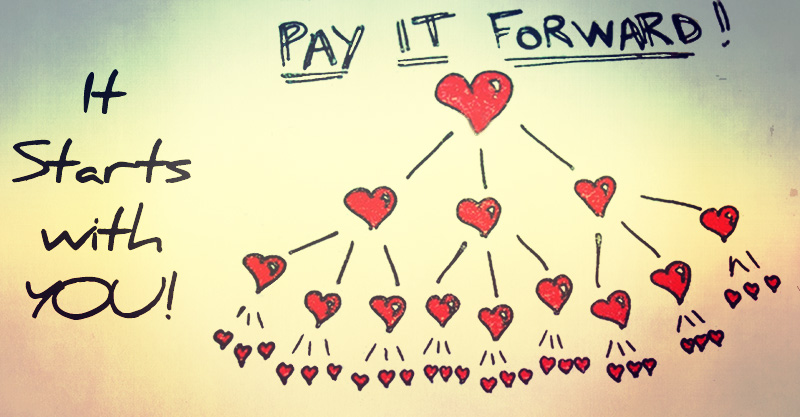
by Sarah Blinco | Nov 15, 2018 | Lifestyle, Travel blogger destinations, Travel Live Learn in the media
Late last year I picked up on something I might need to address, a behaviour that didn’t impress me; I wondered what it would take to do everything without complaining or gossiping? My life would surely be less complicated. I’ll admit, it proved harder than I thought, but my diary on my week without bitching unravelled as follows.
How to do everything without complaining or b!tching: let’s do this!
It happened during lunch a few weeks ago – I was catching up with a group of friends, and typically, not too far into the time we were together, I noticed us all descend into negative chit chat. I could hear the words spilling out of my own mouth and knew I should rein it in, but I was on a roll.
I bid farewell to my mates and headed off to finish work for the afternoon, but something didn’t sit right following the interaction. It dawned on me that with some groups of people, I had fallen into negative patterns. We all need to let off steam now and again, and let’s face it, sometimes we face situations that provoke even the most patient among us. Still, I felt a bad habit brewing, enabled and worsened by certain people and conditions, but also creeping into home life, WhatsApp chats and coffee dates with colleagues. Chronic complainers – we all know them, and that is not who I want to be.
Breaking a b!itch of a habit
They say 21 days is what it takes to form a new habit. I decided to compromise and swore off b!tch!ng for one working week.
I declared my intention to my partner Cooper, and at 9am the next day to Lisa, the first work-pal I saw.
‘No negative talk for a week!’ I shared. She smiled sweetly and encouraged me to pursue it. ‘Excellent!’. Within half an hour we were discussing how irritating Riverdale is and how we’re shocked it scores so many television award nominations. b!tch b!tch b!tch.
Oops. (sorry Riverdale fans… but honestly!)
Onwards, it’s never too late to start fresh. I made it to 3pm determined to stay sensible during a meeting I was set to have with a project group I’m part of. All good, until one of the team made a dramatic entrance announcing he had gossip. I love gossip! And I failed on day one.
Four days to go, and in my diary was a meeting with a fabulous friend of mine, Tina. We often collaborate, and the reality of our ‘one hour’ slots is 45 minutes gossip, 15 minutes work (we are very efficient).
There was giggling, joking and b!tch!ng. As we entered our 35th minute, I told her that I was trying to drop my negative habit and feeling better about myself, I talked us up towards positive perspectives.
Wednesday: mid-point hump day, tough. Instead of engaging with my known triggers, I intentionally surrounded myself with optimistic affirmations and kept an eye on @thedogist Instagram Stories to maintain high spirits. If you’re not familiar with The Dogist, go on – thank me later.
Chronic complaining can be broken by mindful action
By Thursday I found I was catching myself in the act, but still making excuses for my bad behaviour. Two of my favourite people tried to explain that there is a difference between ‘b!tch!ing’ and ‘updating’, particularly if one of them has been away and missed out on ‘news’. I’m not sure it works like that, but we were being mindful of our words and actions, and that’s progress.
As the sun rose on FriYay, I wondered if I should test the rubber-band-on-wrist strategy, to be snapped as a reminder if I caught myself mid-naughty habit; but I granted myself a reprieve. I realised the experiment had been successful – pain free, even – because while I completely failed on the no-gossip, no-b!tch!ng front, I was now fully aware of the behaviour I am changing for the better.
This is good, because I much prefer the girl who contributes knowledge, kindness and wisdom to conversations. If not those things, good cheer, at least. I can’t say that you won’t find me moaning about certain television shows (don’t get me started on Love Island), but nobody’s perfect.
Have you caught yourself in the act – what are your tips on not being the compulsive complainer in your social circles? Let me know in the comments.
First published in the November 2018 issue of Get it Magazine, getit-magazine.com.au

by Sarah Blinco | Oct 29, 2016 | Career and mindset
How YOU can generate kindness in the workplace
(and brighten someone’s day in five minutes or less!)
One of my ‘Friday jobs’ (as part of life working in internal communications) is to wander around our beautiful big central London building to visit all the different departments, update their staff notices, promote whatever’s going on (official business), and share some gossip (unofficial business).
When I returned to my desk after one such round recently, my boss told me that someone in another area, Ashley, had sent him a really nice email about me.
Ashley specifically emailed my boss to share that I represent my team in a positive way both in person and via phone and email. She made the comment that she thinks it’s important to highlight the good going on around us because it’s too easy to dwell on the negatives.
I share Ashley’s sentiment, and while I make a point to always genuinely thank or compliment friends and colleagues in my own way of generating kindness in the workplace, what struck me about her gesture was that she put herself out there and sent feedback to my manager.
That type of action is thoughtful and really matters. It didn’t just brighten my day, but my week which in all honesty had been long, tiring and reasonably stressful.
It got me thinking, what other ways could we each bring a little kindness into work?
4 ways to implement kindness in the workplace today
Thank you cards
I have a little stash of thank you cards at work and I hand write a note on one every now and then when I notice someone has gone out of their way for others.
Certainly, I’m no-one special at work – not a senior manager or anything – but that doesn’t matter to the recipient who is always grateful that someone noticed and cared about their efforts.
Pay attention to what’s going on around you
We are always so busy and stuck in our own deadlines that it’s easy to miss that others are in the same boat.
Being a little mindful and supportive can go a long way.
A hard-working friend of mine, Isabelle, was run down with a cold recently and she was really touched that a nurturing colleague, Emma, picked up some effervescent vitamin C for her while she was out on her lunch break.
They aren’t even in the same team, but Emma clocked that this could make a difference to Isabelle (who was also about to take a long flight to China to visit her sister), and she was right – this was a nice thing to do, at just the right time.
Similarly, two colleagues I work with this week noticed I seemed to be having a tough afternoon and promptly delivered chocolate to my desk. While I very much enjoyed eating the treats, their thoughtfulness cheered me up (thanks Caroline and Izzy!).
Start a gratitude initiative
We have staff noticeboards in all departments at work, and one of our jobs as internal communicators is to use these to build morale and engagement.
We’ve pinned pretty little cloth pouches (jewellery bags I found on eBay) to each board and filled these with coloured cards and pens; staff are encouraged to use these to pin notes on the boards. The messages can be about anything, including events, goods for sale, or praise for co-workers.
More specifically, I’ve pinned up A4 pages that go on the boards blank except for a heading: ‘Thank a colleague who you don’t usually work with who has made a positive difference to you’.
In some departments we’ve ended up with pages of notes from people who have shared messages of thanks (either including their names or anonymously).
When staff see someone’s thanked them in that public space it gives them a nice buzz, and generates wider feelings of happiness throughout the office.
This same concept can be applied using postcards, notes in your internal magazine or newsletters, and on intranet notices, digital thank you cards or conversation threads.
A few words go a long way
Finally, taking a lesson from Ashley’s kind gesture, it only takes a moment to email someone a genuine message of praise or gratitude.
Or, be proactive and let someone’s manager know an awesome job is being done – you might be surprised to know how little this happens!
In my experience people often assume things are a ‘given’; that gratitude or compliments are dished out freely (by someone else!). Often they are not.
Yet, countless human resources survey results have revealed that people are much happier and far more productive when they feel appreciated by managers as well as peers.
Imagine the difference that we would all experience at work if each of us took responsibility for implementing just one small kind action for someone else every week.
I’d love to hear about your tips, ideas and experiences around kindness in the workplace… Is it really possible to make an office happier, do you think?

by Sarah Blinco | Jul 18, 2016 | Career and mindset, Lifestyle, Travel Live Learn in the media
After a very nice break away, yesterday I returned to discover a bulging inbox which left me feeling more than a tad overwhelmed, and to make matters worse, one of the first emails I opened turned out to be a lengthy rant about a piece of content I hadn’t complemented with a photo. The feedback was reasonable enough – I had been forced to rush through a digital feature that was to be attached to a marketing email, and the copy had been supplied at the last minute. Because I was extremely short on time, I failed to include a larger photo on this accompanying attached content, and absolutely agree that it would have been the better way forward. No excuses, and I for one am well aware that the best learning usually comes from recognising the mistakes I’ve made (or how I could have improved).
Only thing is, this message from a reader was shared in such a way that it was upsetting, and the tone of voice used was that of an individual who came across (in this email, at least) as one who assumes they know better.
It was really obvious they had not considered:
- My (as the content creator) feelings and the amount of work actually put into the entire body of work in the first place.
- Other time constraints and workload pressures I might be facing.
- All the other things in the overall campaign I’d actually got right!
Do you know the feeling?
Many of you reading this spend much of your day putting yourselves ‘out there’, creatively speaking and otherwise. Whether you are broadcasting on air, writing, blogging, filming, painting or working in PR and communications – it’s all a bit of a risky business for the ego. Some would even say we’re brave for doing it. I know a lot of people who are apprehensive about sharing their ideas, content or stories for fear of any type of criticism.
As content creators and communicators, we are consistently in a position where we need to produce written work or other creative output (videos, social media, blogs, magazine features etc.), and with that opportunity comes the people who are quick to judge our work, and not often in a constructive way.
We’re all pretty used to being ‘judged’, and I think most of the time this actually helps with positive personal and professional growth. Cooper and I began our careers in radio – an industry rife with arrogance and daily criticism of your work! That said, when delivered well, this really can help you become a far better on-air announcer than you ever would without feedback. Similarly, my mentors in publishing consistently showed me better ways to phrase, word, style and so on. This is how we hone a craft. This experience also helps you to develop a thick skin, which is something of a necessity in this and many other lines of work.
Criticism delivered in a negative, thoughtless or hurtful way though (whether intentional or unintentional on the part of the person sharing it), can have an adverse impact on self-esteem and confidence, and for those working in communications and creative industries, it has the potential to cause real problems.
People tend to be quick to pick problems, but very slow to share praise or thanks in the form of emails or comments on social media, websites or blogs. Have you ever been on the receiving end of destructive criticism and what kind of impact did it have on you?
These kinds of experiences remind me to think twice if I catch myself being judgmental and critical of other people’s work, because actually, they’re likely to have put much time and effort into the ideas, reason and production of the content being consumed out there in the public domain (whether you thoroughly enjoy it or not). Sharing feedback on someone’s published work is actually challenging their abilities and ideas, and it’s reasonable to expect that what comes back – if not entirely positive – should be designed to help them grow.
Moral of the story: give feedback constructively not destructively; and if you’re on the receiving end, take the valuable learning from it, and leave the rest at the door.
Today’s challenge: When you see something online today (on social media, a website, news site or blog) that’s helpful, makes you smile or feel inspired, drop a positive comment there to let the person behind it know you appreciate the thought and time they’ve put in.

by Sarah Blinco | Aug 6, 2015 | Career and mindset, Lifestyle
Lately I’ve encountered an array of ‘temperamental personalities’ within workplaces where I’ve been contracting; nice, intelligent, motivated people, but prone to breeding ill-feelings due to ongoing ‘bad days’ and in some cases, weeks!
One such example: a magazine designer, Anna, all of a sudden got very moody and sullen at work a few weeks back, to the point where she was obviously being very short with other staff (women, in particular). The primary-school-esque behaviour was not something I’d expect in a professional adult setting, but it seemed to me things were happening at home that were being brought into the office (not necessarily professional, but it happens). What followed was also fairly immature − other team members began gossiping about what Anna’s ‘problem’ was, and in turn ended up feeling miserable themselves. After a few weeks, Anna seemed to move on from her moodiness, but one other on the team, Kelly, has taken it all to heart. She’s harbouring resentment, and now this workplace’s communications team aren’t as communicative as they deserve to be.
None of us are immune to getting involved in this kind of thing. We’ve all got clients, friends, bosses and co-workers who are occasionally (or consistently!) moody and pessimistic, and it only takes one snarky word on a bad day, or a rude snub when we’re doing our best to smile in the first place, for a ‘snap’ to take place, and then the spiral downwards begins. I’m sure you can appreciate that awful feeling, when things go from bright and bubbly in a relationship(s), to strained and cold. It’s awful, and incredibly difficult when it happens in a space where you’re forced to spend a lot of time.
 All this negativity can be draining, but after a couple of weeks witnessing what was happening amongst this otherwise-nice group of people, it occurred to me that it wasn’t (and mostly never is) the actions of the person being a bitch/in a bad mood/having a rubbish day/acting like a negative Nancy, that makes a room dull with downer energy. It is actually, us, or accurately, those who play into someone else’s problem, and make it a bigger issue than it needs to be.
All this negativity can be draining, but after a couple of weeks witnessing what was happening amongst this otherwise-nice group of people, it occurred to me that it wasn’t (and mostly never is) the actions of the person being a bitch/in a bad mood/having a rubbish day/acting like a negative Nancy, that makes a room dull with downer energy. It is actually, us, or accurately, those who play into someone else’s problem, and make it a bigger issue than it needs to be.
We may like some co-workers, clients, sales reps, consultants and supervisors we more than others, and that’s ok. But inevitably, a lot of time is spent together as we each toil to generate income, so what if we were to choose to focus on defusing dark situations rather than simply focussing ON the situation alone.
Here’s what I’ve learned │ co-working karma
- Let it go; everyone has ‘their thing’ going on.
- Be forgiving (it’s more pleasant than being resentful).
- Practice kindness – often that’s the ingredient missing in others’ lives.
- Don’t be afraid to instigate peace – grudges are so last decade.
- Choose better thoughts; the more you worry about the issue, the bigger it becomes.
- Devise ways for your team to get-together socially – a relaxed, fun out-of-work environment can put people at ease, assisting individuals to move past office-related issues.
As always, two choices exist. We can spend time being bummed about a situation or someone’s bad attitude; or we can bring light and a little love to the experience. It’s as easy as starting with ourselves, and considering whether or not we’re taking ownership of the energy, actions, attitude and beliefs we are individually putting forward.
If you’re currently having difficulties in your work life, try this before reacting defensively or destructively: think kindly towards those causing you grief. In your mind, wish them a day as nice as you hope yours will be, and try to get into this kinder mindset before setting foot in the office or into the meeting you’ve been dreading. It’s easy to forget that everyone has their own thing going on, and that it’s up to us to each show up with grace, gratitude, and a tidied-up attitude. With this in mind, it could be you who singlehandedly brings warmth to cold times.
By Sarah Blinco. Originally published, Get it Magazine, June 2015





 All this negativity can be draining, but after a couple of weeks witnessing what was happening amongst this otherwise-nice group of people, it occurred to me that it wasn’t (and mostly never is) the actions of the person being a bitch/in a bad mood/having a rubbish day/acting like a negative Nancy, that makes a room dull with downer energy. It is actually, us, or accurately, those who play into someone else’s problem, and make it a bigger issue than it needs to be.
All this negativity can be draining, but after a couple of weeks witnessing what was happening amongst this otherwise-nice group of people, it occurred to me that it wasn’t (and mostly never is) the actions of the person being a bitch/in a bad mood/having a rubbish day/acting like a negative Nancy, that makes a room dull with downer energy. It is actually, us, or accurately, those who play into someone else’s problem, and make it a bigger issue than it needs to be.